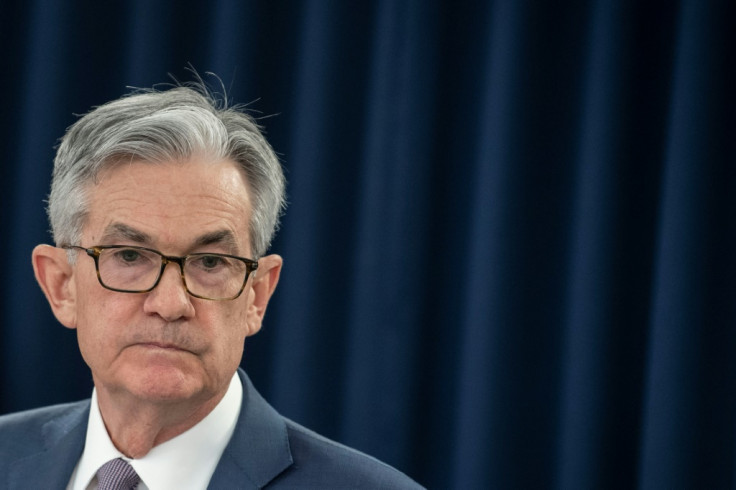Fed seeks to offer reassurance amid push for new US stimulus
The two-day event concludes amid a renewed push by a top lawmaker in Washington to agree on an additional spending bill to prop up the economy.
Armed with a new interest rate strategy, the Federal Reserve will seek to reassure the US economy rattled by the coronavirus downturn as it wraps up its policy meeting on Wednesday.
The two-day event concludes amid a renewed push by a top lawmaker in Washington to agree on an additional spending bill to prop up the economy following a historic collapse in GDP in the second quarter and data showing a worryingly high rate of new layoffs.
The United States is home to the world's worst coronavirus outbreak with more than 194,000 deaths, and in the pandemic's opening days the Fed slashed its benchmark lending rate to near-zero and rolled out trillions of dollars in liquidity lines to keep markets functioning.
But the continued fiscal support that Fed officials -- including Chair Jerome Powell -- say the world's largest economy needs to weather the downturn has yet to be approved, and with nowhere to go on interest rates, economists predict the policy-setting Federal Open Market Committee (FOMC) will rather attempt show they are doing their part.
"America's central bank is likely to emphasize a decidedly low rate outlook for years to come to help nurse the world's biggest economy back to health after a record contraction," said Joe Manimbo, senior market analyst at Western Union Business Solutions, referring to the second quarter when the business shutdowns caused GDP to collapse by a record 31.7 percent annualized.
As the meeting got underway on Tuesday, Nancy Pelosi, speaker of the Democrat-led House of Representative, announced a new attempt to break weeks of deadlock with the White House and Republican-controlled Senate on passing a new spending bill.
"We are committed to staying here until we have an agreement," she said on CNBC, adding that she was "optimistic that the White House, at least, will understand that we have to do some things."
When unemployment is low, FOMC meetings can be suspenseful affairs as committee members mull over whether or not to shift their benchmark rate.
But no longer. The Fed last month rolled out a new average inflation targeting policy that will keep rates lower for longer in a bid to maximise employment for the benefit of poor workers.

"There is little that is expected to come out of the meeting. Indeed, barring a major rebound in the virus, little is expected for the next couple of years," economist Joel Naroff said. "The members could keep phoning, or should I say videoing, it in. It would save time and money."
The unemployment rate spiked to 14.7 percent in April as the business shutdowns to stop Covid-19 exacted their toll, but has since since declined to 8.4 percent in August as states loosened lockdown restrictions, while key sectors of the economy like housing and retail sales have posted rapid recoveries.
But Labor Department data shows elevated levels of people filing new unemployment benefit claims each week, with 884,000 filed in the week ended September 5.
The meeting will see participants give economic projections and forecasts for as far ahead as 2023, which Steve Englander, managing director at Standard Chartered Bank, expects will predict "slow recovery, slow pickup in inflation."
The Fed is loathe to intervene directly in politics but Powell and others officials have repeatedly said the US economy needs more spending to make it through the downturn.
The $2.2 trillion CARES Act passed in March included provisions like an extra $600 in weekly payments to the unemployed and a program of loans and grants to prop up small businesses.
But those provisions expired in recent weeks and Democrats last week blocked a $500 billion proposal in the Republican-controled Senate that would have partially restored the weekly payments.
Powell is scheduled to speak after the meeting concludes at 1800 GMT, and David Wessel, a senior fellow at the Brookings Institution, said he'd be watching the chair's comments for signs of his opinion on the wobbly situation.
"With the economy showing a slightly better than expected rebound and Congress paralyzed by partisan tensions, he may be even more circumspect," Wessel said.
Copyright AFP. All rights reserved.
This article is copyrighted by International Business Times, the business news leader





















